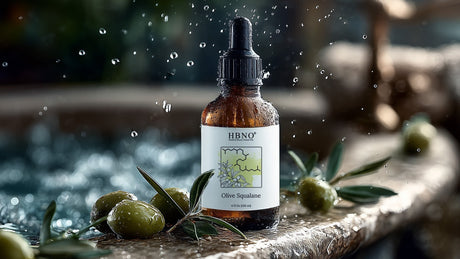Castor oil has earned a place of honor in natural skincare and handcrafted soap making. When comparing black castor oil vs castor oil, the latter is typically favored for its clarity, texture-enhancing, and lather-boosting properties in soap formulations.
Whether you're a seasoned soap maker or just starting out, incorporating castor oil can elevate your final product. Its unique chemical structure makes it more than just a base oil-it's key to consistency, feel, and overall performance.
Why Use Castor Carrier Oil for Soap Making?
In the world of handcrafted soaps, not all oils are created equal. Some offer hardness, others moisture, and a few contribute to bubbly lather. Castor carrier oil for soap making brings a distinct advantage-it helps create a rich, stable lather even in small amounts.
Unlike other oils that may feel greasy or disappear quickly from the skin, castor oil enhances a soap's foaming ability while adding a creamy consistency. This makes it especially useful for shampoo bars, facial bars, and luxurious body soaps where both cleansing and lathering matter.
Boosts Lather Naturally
One of the most prized benefits of castor oil for soap is its ability to amplify lather. Even a small percentage of castor oil-typically between 5% to 8% of the total oil mix-can significantly improve a soap's suds and feel.
Lather isn't just about aesthetics-it also affects how the soap glides over the skin. Castor oil helps produce small, creamy bubbles that provide a smooth and pleasant washing experience. Soaps without castor oil may feel flat or lack the satisfying foam many users expect.
Enhances Soap Texture and Consistency
Castor oil's thick texture brings a lot to the table when crafting cold or hot process soaps. It acts as a binding and softening agent, helping to balance out oils like coconut carrier oil (which can be drying) or palm (which can be overly hard).
When used correctly, castor carrier oil makes soap more pliable during the molding phase and contributes to a smoother final texture once cured. It also blends well with other oils, ensuring that your recipe maintains a balanced hardness, conditioning value, and lather profile.
Works Across All Soap-Making Methods
Whether you prefer cold process, hot process, or melt-and-pour techniques, castor oil for soap adapts well to each method. In cold process soaps, it traces quickly and adds structure. In hot process soaps, it integrates easily and boosts softness. In melt-and-pour bases, it can be added post-melt in small amounts to enrich the final bar.
Its flexibility also extends to scenting. Castor oil blends well with essential oils and other soaps for fragrance oils, making it ideal for those who want a custom scent profile in their natural soap.

Adds a Gentle Moisturizing Effect
Although not overly greasy, castor carrier oil imparts a subtle moisturizing feel. This makes it a useful choice for people looking to craft soaps that cleanse effectively without stripping the skin. It acts more as a conditioner than a hydrator, helping the skin feel comfortable and smooth after washing.
Castor oil is often used in combination with deeply moisturizing oils like shea butter, avocado carrier oil, or jojoba carrier oil to provide an even more nourishing blend. This balance is key to creating soaps that are both functional and skin-friendly.
Economical and Easy to Store
Beyond its performance, castor oil is also a practical ingredient from a business perspective. It's affordable, widely available, and boasts a long shelf life, especially when stored in a cool, dark place.
Since only a small amount is typically needed in most soap formulations, a single liter can go a long way. That makes castor oil for soap a smart investment for both home crafters and large-scale artisans.
Blends Well with Other Oils
Castor oil isn't meant to stand alone in soap formulas-it works best in combination with other oils to balance hardness, cleansing, and conditioning. It pairs especially well with coconut oil (for cleansing), olive oil (for softness), and palm oil or lard (for structure and hardness).
A classic beginner's soap recipe, known as a "Bastille" or "Castile Plus," often includes about 5% to 8% castor oil alongside 70% olive oil and 25% coconut oil. This formula yields a gentle, nourishing bar that lathers beautifully and suits most skin types.
Ideal Usage Percentage
While it's tempting to add more castor oil to boost lather, it's important not to overdo it. Too much castor oil-beyond 10%-can make the soap sticky or soft, affecting cure time and longevity. The sweet spot for most recipes is between 5% and 8% of total oils.
That balance ensures your soap benefits from the unique properties of castor carrier oil for soap making without compromising hardness or stability.
Conclusion
Castor Oil is an essential ingredient in natural soap making, prized for its ability to improve lather, texture, and skin feel. As a Castor Carrier Oil, it plays a critical role in enhancing soap formulations, making it easier for artisans to create high-quality, plant-based bars. Whether you're crafting for personal use or commercial sale, adding castor oil for soap offers a reliable way to upgrade your recipe. Affordable, versatile, and easy to work with, castor oil deserves a permanent spot in every soap maker's pantry.
Elevate your creations with premium quality-shop Castor Carrier Oil in bulk from HBNO Bulk and take your soap making to the next level. Stock up with a Private Label Bulk Provider ensuring quality sourcing and efficient supply chain support.




